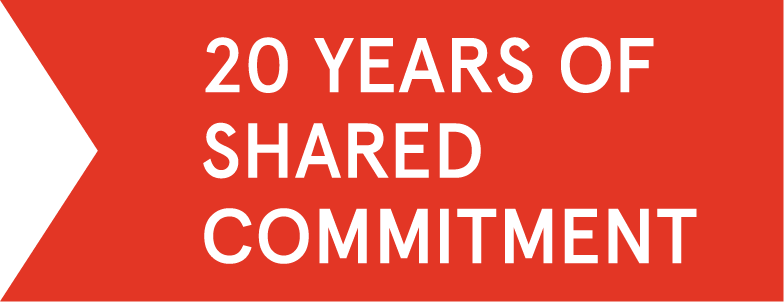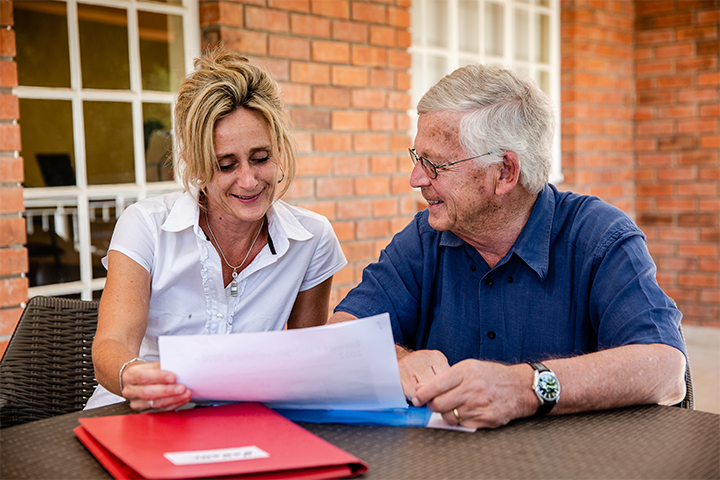What was the highlight for you last year?
Ruedi Lüthy: For me personally it was Ignazio Cassis’s visit. To have a Swiss Federal Councillor visit was a great honour for us all and a mark of recognition.
Sabine Lüthy: What particularly pleased me last year was the various awards presented to my father. From the honorary doctorate from the University of Basel to the Swiss Human Rights Award, they’re all a sign of the unique things he and his work have achieved.
Ruedi Lüthy: But it wasn’t just my achievement. It was the achievement of the whole team, both in Bern and Harare. The year 2019 was incredibly demanding, especially for our staff in Zimbabwe, but it also showed what we’re capable of.
The electricity and water supplies failed and the public health system collapsed. How did Newlands Clinic handle all this?
Ruedi Lüthy: We have the huge privilege of being able to work largely independently of outside influences. Thanks to our donors in Switzerland we can buy drugs and pay our staff decent wages. We also have a supply of water from our own deep well. Another crucial factor was that with the help of the Swiss Agency for Cooperation and Development we were able to start generating power with our own solar installation.
Sabine Lüthy: That means we’re largely autonomous and well equipped for the future. I think this crisis has brought out the best in all of us and bonded us even more closely together. Without the dedication, skill and courage of our staff we’d never be able to run the clinic so successfully.
To what extent does the desolate state of the public healthcare system in Zimbabwe affect Newlands Clinic?
Ruedi Lüthy: We have many more seriously ill people coming to us who would previously have been treated in public hospitals and are now seeking help from us. Many of them have advanced HIV infections and secondary diseases such as cancer. Besides clear criteria, we have to be very flexible to be able to help as many people as possible while making optimum use of our limited resources.
Sabine Lüthy: This situation will continue to give us plenty to deal with − as will the impact of the coronavirus, of course. Many people in Zimbabwe are malnourished and have a weakened immune system, and the hygienic conditions are poor. That’s worrying. But we’re as well prepared as we can be and will do everything to continue providing comprehensive care to our patients in this crisis. The trust our donors place in us is especially important to us at times like this.
2019 Annual Report


